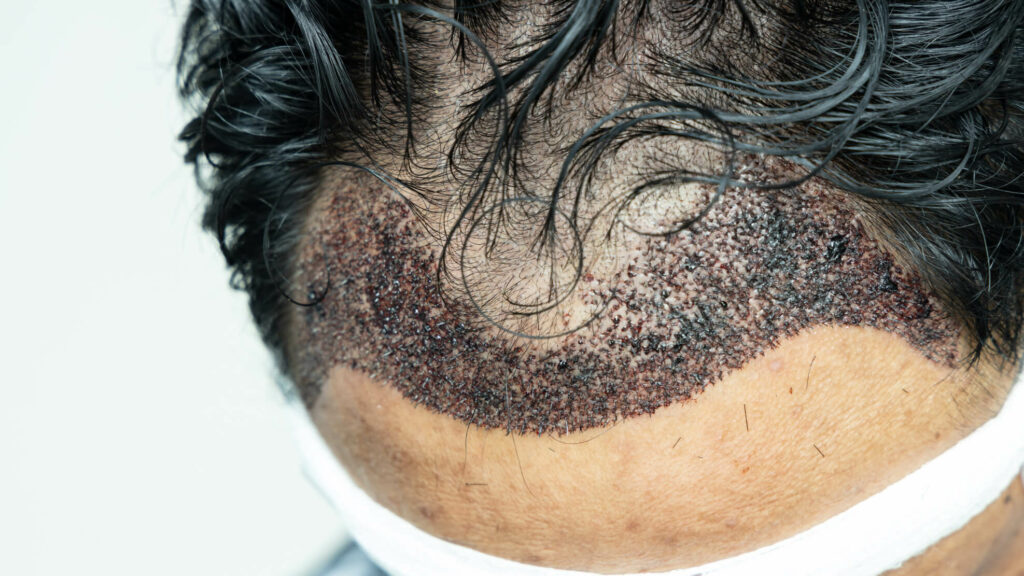Hair Transplant Surgery: Is It Right for You?
Introduction
If you’re experiencing hair loss, it’s important to talk to a doctor if you’re not sure what’s causing it. There are many potential causes of hair loss, including hormonal changes, stress, and genetics. In some cases, lifestyle changes or medication may be effective in treating your hair loss. But in other cases — such as when there is an underlying condition causing your hair loss — a different type of treatment may be necessary. One option that can help with this problem is hair transplant surgery. This procedure involves taking donor hairs from the back of your head (where they don’t grow) and placing them in areas where they can regrow naturally over time
Hair loss may be a sign of an underlying condition
Hair loss may be a sign of an underlying condition. Hair loss can be caused by stress, diet, genetics and hormones. Other conditions that can cause hair loss include thyroid disease, iron deficiency, fungal infections and cancer. If you are concerned about your hair loss or would like to know more about treatment options for baldness, please see your doctor.

If you are experiencing hair loss, it is important to consult with a physician. Hair loss can have many different causes and treatments that should be tailored to your specific situation.
Lifestyle changes and medication may be effective in treating hair loss
If you’re considering a hair transplant, it’s important to remember that lifestyle changes and medication are effective treatments for hair loss. Lifestyle changes include:
- A healthy diet that includes vitamins, minerals, and essential fatty acids
- Exercise on a regular basis
- Stress management techniques such as meditation or yoga
Medication may also be prescribed, such as minoxidil (Rogaine).
A hair transplant is a common treatment for hair loss. It’s performed by a doctor or surgeon and can restore your natural hairline in just one day.
Hair transplant surgery may be right for you if other treatments are not working
If you have tried other treatments, such as medication and lifestyle changes, but they are not working for you, then hair transplant surgery could be the right treatment option. Hair transplant surgery is an effective treatment option that has been used to treat hair loss for many years. Hair transplant surgery can help patients achieve fuller-looking hair both in their scalp and on their face. Combining this with other treatment options may be beneficial if they are experiencing additional symptoms of alopecia such as eyebrow loss or eyelash growth problems.
Hair transplants are considered a long-term solution to baldness; however, treatments may have varying results depending on the individual patient’s condition at the time of treatment.
Learn about the different types of hair transplant procedures and what to expect
In most cases, the type of procedure you choose will depend on your personal preferences and the amount of hair you have to transplant. For example, FUT (follicular unit transplantation) is often used when there are fewer grafts needed—usually because the patient wants to look younger by filling in balding areas or thinning hair lines. It’s also ideal if you have enough donor hair from other parts of your head or body that can be used for transplantation.
On the other hand, FUE (follicular unit extraction) is more common for patients who don’t want to undergo a big surgery on their head but still need a large amount of hair transplanted in order to achieve their desired look. In this case it can take several sessions over a period of months or years depending on how much donor material needs to be used.
Finally there’s HFUE (hand-assisted follicular unit extraction), which combines both methods into one session for even quicker results with less discomfort after surgery! However this type isn’t recommended if you have very little donor scalp left behind after prior surgeries like colectomy or cancer treatments due its close proximity coupled with heavy doses of anesthesia required during such procedures.

The cost of hair transplant surgery can vary significantly
The cost of hair transplant surgery can vary significantly. The price will depend on the type of procedure, how much hair you want to transplant, and where it’s performed. For example, a local procedure may cost less than an overseas one because they don’t have as many overhead costs. Hopefully this guide has helped you understand what factors go into determining the price tag for your hair transplant surgery and that it’s not always best to choose the most expensive option available to you.
If you are considering hair transplant surgery, talk to a specialist about the potential risks and costs.
If you are considering hair transplant surgery, talk to a specialist about the potential risks and costs. The following questions can help you determine whether or not this procedure is right for you:
- How long will it take to recover?
- What happens if I don’t like the results?
If the answers to these questions make sense for your situation, then a consultation with a board-certified hair restoration surgeon may be in order. A specialist will be able to assess whether or not transplanting some of your own hair onto thinning areas of your scalp might work well for your needs as well as how much it might cost. This initial consultation can also help you decide whether or not getting a second opinion would be helpful before moving forward with any further steps toward treatment.
Conclusion
Hair transplant surgery is an effective and minimally-invasive treatment for hair loss. It can help you regain your self-confidence and look younger, but it is not a one-size-fits-all solution. Hair transplantation can be expensive, so it’s important to research all of your options before making a decision about whether or not this procedure is right for you. If you are considering hair transplantation as a treatment option for your hair loss, talk with a specialist about the potential risks and costs associated with this procedure.
